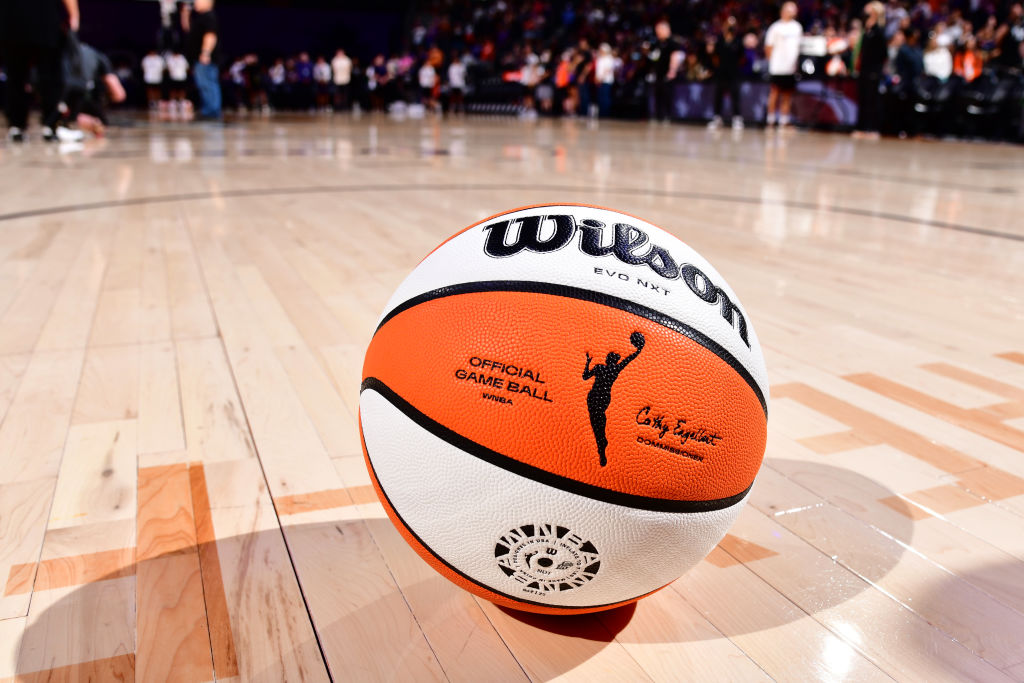
October 10, 2024
WNBA Lambasted Over Poor Player Protection
WNBA Commissioner Cathy Englebert originally pointed to the positive aspects of a budding rivalry between Angel Reese and Caitlin Clark instead of forcefully condemning the rhetoric.
Although the WNBA has experienced a banner year in terms of exposure, ticket sales and a marked increase in media attention, the league’s growth has not been positive for all of its players.
According to Andscape, the league should have seen some of the vitriol coming, particularly in the wake of the treatment Chicago Sky forward Angel Reese received during her last year at LSU after she made a “you can’t see me” hand gesture at Iowa’s Caitlin Clark after Reese’s squad won the NCAA championship.
As David Dennis Jr. wrote, “However, the attacks on Reese weren’t really about Clark. They were about hating Reese as a confident, outspoken Black woman…One group is full of genuine Clark fans. The people who are enamored with her court vision, shooting and connection with the audience.”
Dennis continued, “Then there’s the other group. That group is full of people who see Clark as a way to express their most deep-seated, hateful thoughts about the Black and queer women in the WNBA.”
It is that other group that has attracted the most attention in recent weeks, prompting some to compare the playoff atmosphere at Indiana Fever, Clark’s home court, to a MAGA rally, turning what used to be a safe space for queer people and Black women into a much more uneasy atmosphere.
That uneasy atmosphere took on something much more sinister after it was revealed that Dijonai Carrington, the newly minted most improved player in the WNBA, received a threat containing the n-word and wishing sexual assault on her from a Fever fan.
“I think that in my 11-year career I never experienced the racial comments like from the Indiana Fever fan base. It’s unacceptable, and honestly, there’s no place for it,” Connecticut Sun forward Alyssa Thomas told reporters.
“We’ve been professional throughout the whole entire thing, but I’ve never been called the things that I’ve been called on social media, and there’s no place for it. Basketball is headed in a great direction, but we don’t want fans that are going to degrade us and call us racial things. Something needs to be done,” Thomas said.
According to The Athletic, when given the chance to address the concerning rhetoric from purported Indiana Fever fans, WNBA Commissioner Cathy Englebert pointed to the positive aspects of a budding rivalry between Reese and Clark instead of forcefully condemning the rhetoric.
This drew the ire of the WNBPA and two-time league MVP and New York Liberty forward Breanna Stewart.
Terri Jackson, executive director of the WNBPA, said in a statement released by the players union, “There is absolutely no place in sport—or in life—for the vile hate, racist language, homophobic comments and misogynistic attacks our players are facing on social media.
“This is not about rivalries or iconic personalities fueling a business model. This kind of toxic fandom should never be tolerated or left unchecked.”
“During a recent media interview, I was asked about the dark side of social media and online conversation about WNBA rivalries and race,” Englebert later clarified on Twitter. “To be clear, there is absolutely no place for hate or racism of any kind in the WNBA or anywhere else.”
Reese also addressed how the media effectively made her a villain to spin a narrative in her own post on Twitter.
“For the past two years, the media has benefited from my pain & me being villainized to create a narrative,” Reese wrote.
“They allowed this. This was beneficial to them. I sometimes share my experiences of things that have happened to me, but I’ve also allowed this to happen to me for way too long, and now other players in this league are dealing with & experiencing the same things. This isn’t ok at all. Anything beyond criticism about playing the game we love is wrong. I’m sorry to all the players that have/continue to experience the same things I have.”
The Athletic’s Jim Trotter pointed out that although Clark calling the attackers trolls was a welcome sentiment, it missed the mark regarding what these people actually are: racists.
Trotter also indicated that the league and its franchises are not innocent bystanders here.
“The league and its teams are not helpless in this matter. Hate can never be fully eradicated; it’s as much a part of this country’s history as stars and stripes,” Trotter wrote. “But there are steps that can be taken. For one, teams can control who and what are brought into their arenas. The only reason someone would connect Trump’s campaign slogan to a sporting event featuring predominately Black and/or queer women is to provoke a response that has nothing to do with basketball.”
RELATED CONTENT: A Single Vote For Angel Reese Prevented Unanimous Win For Caitlin Clark’s WNBA Rookie Of The Year